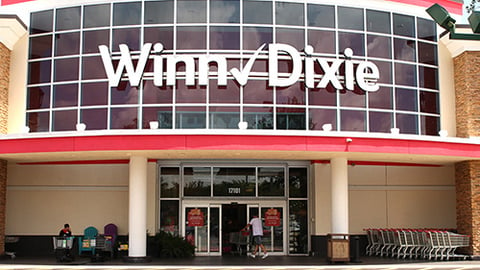Masks, BLM Drive Retail Boycotts From Both Sides
Retail boycotts are on the rise, especially among younger consumers. Racism and mask policies stand as big reasons for those actions, with consumers on both sides taking stances.
That’s according to a new survey report from CompareCards by LendingTree, an online marketplace for consumers seeking financial services.
The survey found that 38% of consumers are withholding their dollars from at least one company, up from 26% in January 2019. The main reason for those boycotts are political — that is, not about such other factors as poor customer service, return policies or mishandled payments. The results are based on online surveys of 1,026 U.S. consumers conducted between July 10-13.
Of those boycotting customers, 23% said they are avoiding companies because of accusations of racism leveled against them. “A similar number of consumers said the diversity of a company's executive suite factors into their decision to spend money with that company,” according to the survey report.
Not all consumers are on the same side when it comes to boycotts, the new report documents.
For instance, 19% of consumers who are boycotting a company did so because that organization supports Blacks Lives Matter (BLM) — while 18% are boycotting a company because they do not support the BLM movement. Out in the world of retail, many companies have quickly moved to support efforts against racial injustice or racial stereotyping, while some have taken their own path and resisted at least some calls for change.
As more retailers rush to implement masks requirements for shoppers, consumers appear divided on where they stand, according to this research. It found that “16% are withholding dollars from businesses that don't require shoppers to wear masks, but 15% are boycotting places that do require patrons to don face coverings.” That battle appears to be turning in favor of mandatory mask policies for retail shoppers even though some states have resisted pressure to set their own requirements.
Age has much to do with the possibility of boycotts, with older consumers less likely to take such action. The research found that 51% of Gen Z shoppers are engaged in a boycott against at least one company, with 52% of millennials saying the same thing. For Gen X, that percentage drops to 37%, and for baby boomers, 22%. Only 16% of older consumers — the silent generation — report being part of a boycott against a company.
The report also found that 53% of surveyed consumers are more likely to buy from a company that gives to charities or is associated with causes shoppers believe in. Beyond that, 41% said they would cut ties with a favorite retailer if that business publicly supported something or someone the consumer strongly disagrees with.
"America is as polarized and politicized as it has ever been, and Americans often want to make a statement with what they watch, where they go and who they listen to,” said Matt Schulz, chief credit analyst for CompareCards. “Millions of Americans are simply no longer willing to support a business that doesn't align with their values.”





